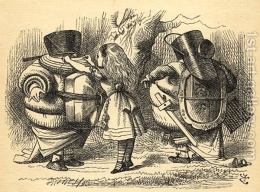Chapter 11
The idealised view of Wikipedia, as promoted by writers like Joseph Reagle, faculty associate at the Berkman Center for Internet and Society at Harvard, and author of Good Faith Collaboration: The Culture of Wikipedia, is of a community of people working in good faith to bring all human knowledge to everyone on the planet. The reality is different. Wikipedia is in a permanent state of war: a sort of virtual war with many theatres of conflict across the project, engaging hundreds or thousands of participants, and with as many virtual casualties as there are real casualties in real wars.
One of the first edit wars on Wikipedia is a nationalist dispute that breaks out in 2003, around the ‘correct’ name for the city that the Polish editors such as user:Gdansk call Gdansk, and German editors such as user:Nico insist is really Danzig.
Official histories of Wikipedia end the story at this point. Yet conflicts flare up every day, in every part of the project, even in parts where an ordinary person would find it difficult to imagine conflict. Wikipedia is in a permanent state of war, with physical violence only avoided by the physical remoteness of the participants. Why?
The problem is Wikipedia’s incentive system. Unlike the low-skilled administrators, content creators have no special status. Wikipedia is rather like an organisation where the administrators, the security guards, the lift attendants and the cleaners are given executive style salaries and bonuses, and where the professionals and specialists – the lawyers or accountants or surgeons – are paid minimum wages, without benefits, and where they are compelled to accept help from any unqualified person who offers it.
This system of enforced collaboration drives away experts. However, although there are no official incentives for content contribution, Wikipedia offers strong unofficial ones, namely the opportunity for writers to showcase their work on one of the top ranking sites on the internet. We don’t need any special theory to explain why people contribute to Wikipedia, since any existing theory of self-interest and promotion will do.
“Unfortunately, the PR firms, the fanatics, the ethnic warriors, the politically brain-washed and the garden-variety vandals have overwhelmed any neutral voice ... It really is too bad that the failure in this is abject, on-going, and essentially unlamented”, laments a Wikipedia editor.
